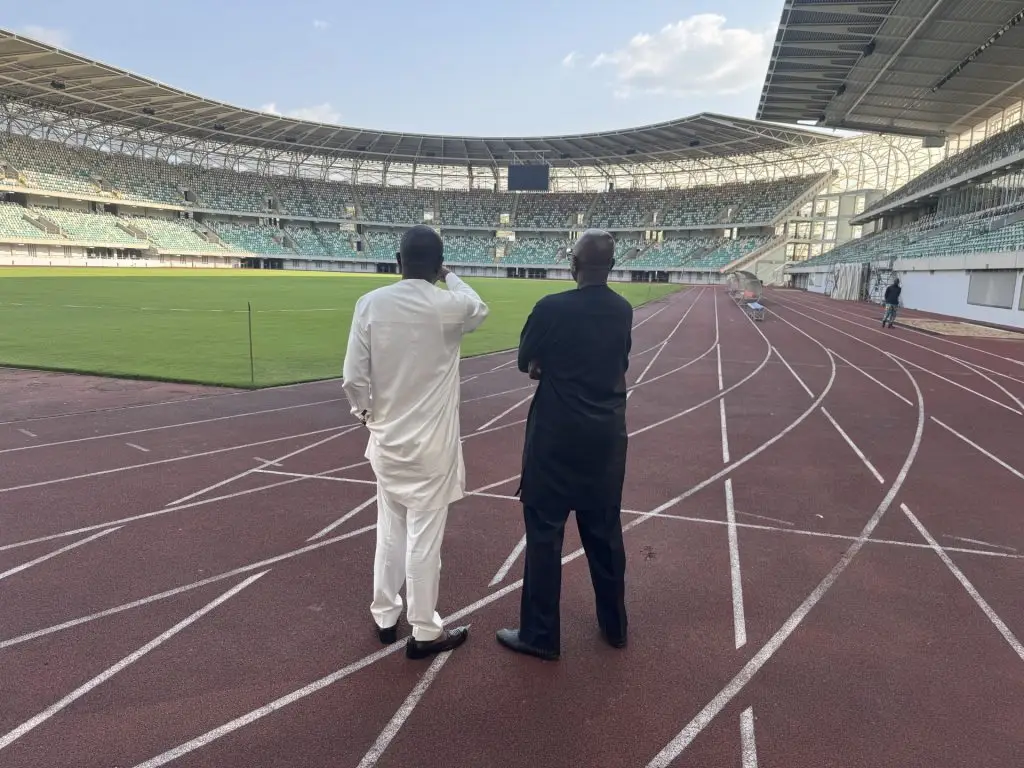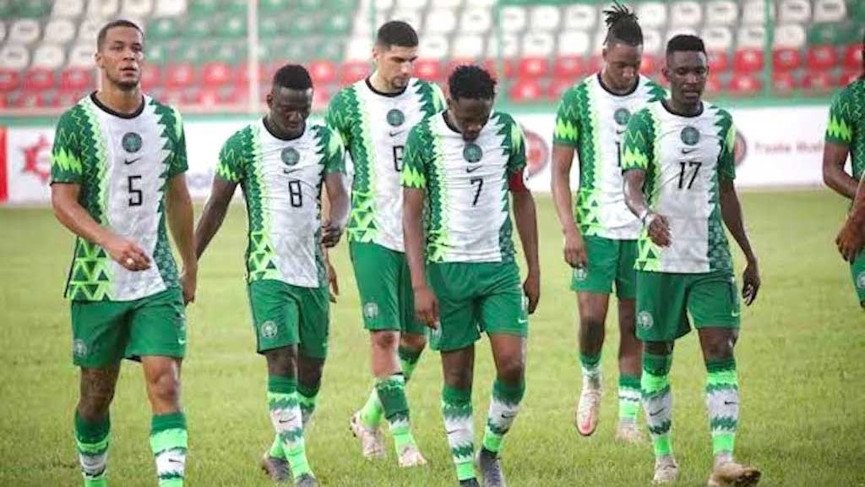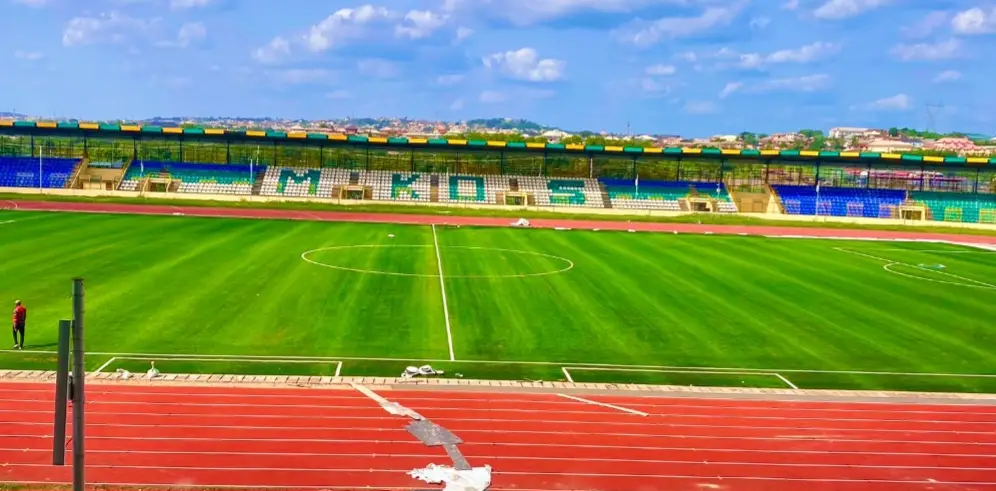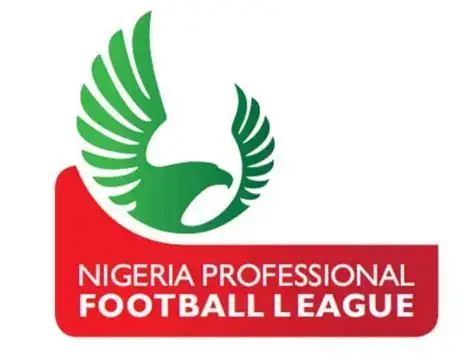Any one born after 1978 may not have heard, or may not know about Adekunle Awesu and may choose to read this out of curiosity, or out of the prospect of informative value, or because I am suggesting they do so because it will be worth their while and time to know about a football genius that lived and died leaving behind only mysteries.
Even those that know the history of Nigerian football very well, from before 1979, may only remember snippets of the life of one of the most gifted, left-footed football players in Nigeria’s history.
To date, no one has been able to tell precisely when and how Kunle Awesu died in the USA. His obituary was never officially published, and, strangely, Nigerian newspapers were not awash with news of the death of the player who was selected as the best left-winger at the African Cup of Nations of 1976 in Dire Dawa, Ethiopia.
So, the big question is: Why am I bringing up the story of Kunle Awesu now, some 28 years, or so, after he died?
The reason is simple. His spirit is hovering around.
Two weeks ago, browsing through one of my web sites, I found a recent message from a complete stranger enquiring about Kunle Awesu. Frank Thomas, an American based in the United States, wanted to know about the whereabouts of his colleague from their days at Clemson University. He told me that since they graduated and parted ways in 1992/93 he had lost complete touch with Kunle. They cultivated a close friendship that grew out of Kunle’s mysterious ways during their 4 years stay in the University.
I gave him the bad news – Kunle died mysteriously sometime after the 1994 World Cup in the United States. The circumstances of his death are still uncertain till this day. He died alone in his apartment, leaving no trail of any relations, friends or even immediate family. To date, it is not known that Kunle ever got married and had any children. There is no family trail even here in Nigeria. From the moment he departed Nigeria, he disappeared completely from the radar of Nigerian football. Nothing was ever written about him and his extraordinary skills in the American Collegiate football system, very much unlike the army of great Nigerian footballers that joined the flood of emigration to the greener pastures of football and academics that America offered lavishly between the mid-1970s and the early 1990s.
Frank Thomas, devastated by the news of Kunle’s death that I provided him, also started to tell me about Kunle’s life at Clemson University, invaluable new information that provides a missing chapter in the ‘empty’ book of the life of one of Nigeria’s unacknowledged and forgotten football heroes.
Coincidentally, a week before Frank’s communication with me, at the Nigerian Institute of International Affairs, NIIA, I had written down Adekunle Awesu’s name in a list of African sports heroes that had given up their dream of Olympic participation and possible medals to support the fight against racism and Apartheid in South Africa, and paved the way for the election of the first Black President in South Africa, late Nelson Mandela.
Kunle was a member of that Green Eagles team to the Montreal Olympic Games in in 1976, that famous 4-3-10 (the margin of goals they scored against minor European clubs they played against in Europe en-route Montreal) Eagles. That feat struck fear in the camp of opposing teams in the football event.
The Sports and Diplomacy Unit of the Nigerian Institute of International Affairs, NIIA, that I head, is compiling the names of the heroic athletes from 27 African countries that boycotted the Games (a huge and unprecedented sacrifice) to be embossed in Gold on a special wall either in the headquarters of the African Union in Ethiopia, or within the NIIA headquarters in Lagos. It is a project still in its early stage of conceptualisation.
That’s how Kunle Awesu’s name ‘resurrected’ twice in the space of one week. Frank Thomas’s enquire about Joseph Awesu is now providing incredible new stories about the life of the extra-ordinarily gifted late Nigerian football player, rousing his resting spirit and filling a big gap in the story of his life that has never been told, and is about to be told for the first time in 43 years, filling a chapter in the blank book of Kunle’s life.
I’ve spent an hour listening to Frank Thomas recall the mysterious ways of Joseph Awesu (that’s what he called himself in Clemson, part of his disguise to hide his celebrity status in African football from Americans, and concentrating on his academics completely). It is an intriguing story that I shall share with Nigerians on a different platform in the days ahead.
Kunle Awesu and I were club team mates since 1973. He and Mudashiru Lawal joined me in Housing Corporation FC Ibadan, before we all moved to Shooting Stars FC in 1974.
Muda and Kunle went to the African Cup of Nations in Dire Dawa, Ethiopia in 1976 with the Green Eagles, and Kunle was the ‘key’ that broke down several opposing defences. Nigeria achieved her first AFCON Third-place success in that year and Kunle was named the best in his position in the whole of Africa.
He returned to lead Nigeria’s attack in securing a win against Morocco to qualify for the Olympic games, and played a major role in the IICC Shooting Stars’ achievement that year, winning the Africa Cup Winners Cup, and being the first club to achieve that feat in Nigeria’s history.
He was absolutely brilliant on the left flank of the Nigerian attack, mesmerising with his dribbling skills, electrifying speed and deadly with his greatest asset, pinpoint accurate crosses begging for the head of any average striker that could head the ball. That’s how Thompson Usiyan and I benefitted from Kunle’s floating crosses. Indeed, I scored my very first goal for the Green Eagles, against Sierra Leone, with a header off one of his beautiful crosses.
Kunle was part of Nigeria’s failure to win the last match against Tunisia that would have taken Nigeria to the World Cup for the first time in 1978. That disappointment shattered him as it did many of us. Thereafter, he was part of winning everything in domestic football – the National league and the FA Cup – with IICC Shooting Stars in 1978/79.
Then it happened.
As Nigeria prepared for the 1980 African Cup of Nations, with the growing reputation of Nigerian players, American College coaches descended in droves on Nigeria, ‘raided’ the domestic league and lured away many of its best young players that were desirous of academic opportunities in America.
The result was a flood of migrants to the USA from the mid-1970s to the early 1990s, some of the best players of that era. The exodus lasted almost two decades, probably the largest in Nigeria’s history to date. The lure of education was overpowering, fuelled also by the stories of retired players littered with penury and neglect. That’s how many of Nigeria’s most gifted players headed across the Atlantic in search of greener pasture.
That was the last heard or read about Kunle Awesu in Nigeria. It was as if he disappeared from the face of the earth, as if he never even existed. Football did not miss him only because there was a young, mesmerizingly brilliant dribbler, an undergraduate of the University of Lagos, Adokie Amiesimaka, waiting in the wings to take over his place.
According to Frank Thomas, Kunle did very well in his studies in the United States, but lived a secluded life, focused on his academics, chose to be known and called Joseph and shielded his identity and celebrity status in Nigeria as much as possible.
It is not strange because even in Nigeria, there has not been anyone to fill the missing chapters in the life of this great Nigerian football hero, called Adekunle Awesu – no parents, no wife, no children, not even a friend.
Frank had incredible but heart-warming stories to tell about Kunle, a small part of his life in Clemson University. I shall soon tell it.









That’s life.
Very touching story of a great Nigerian football legend.
Kunle Awesu had left his indelible legacy on football pitch. Though he’s never heard of again.
May God bless his soul .
Thank you sir for the writeup on the late Kunle Awesu.